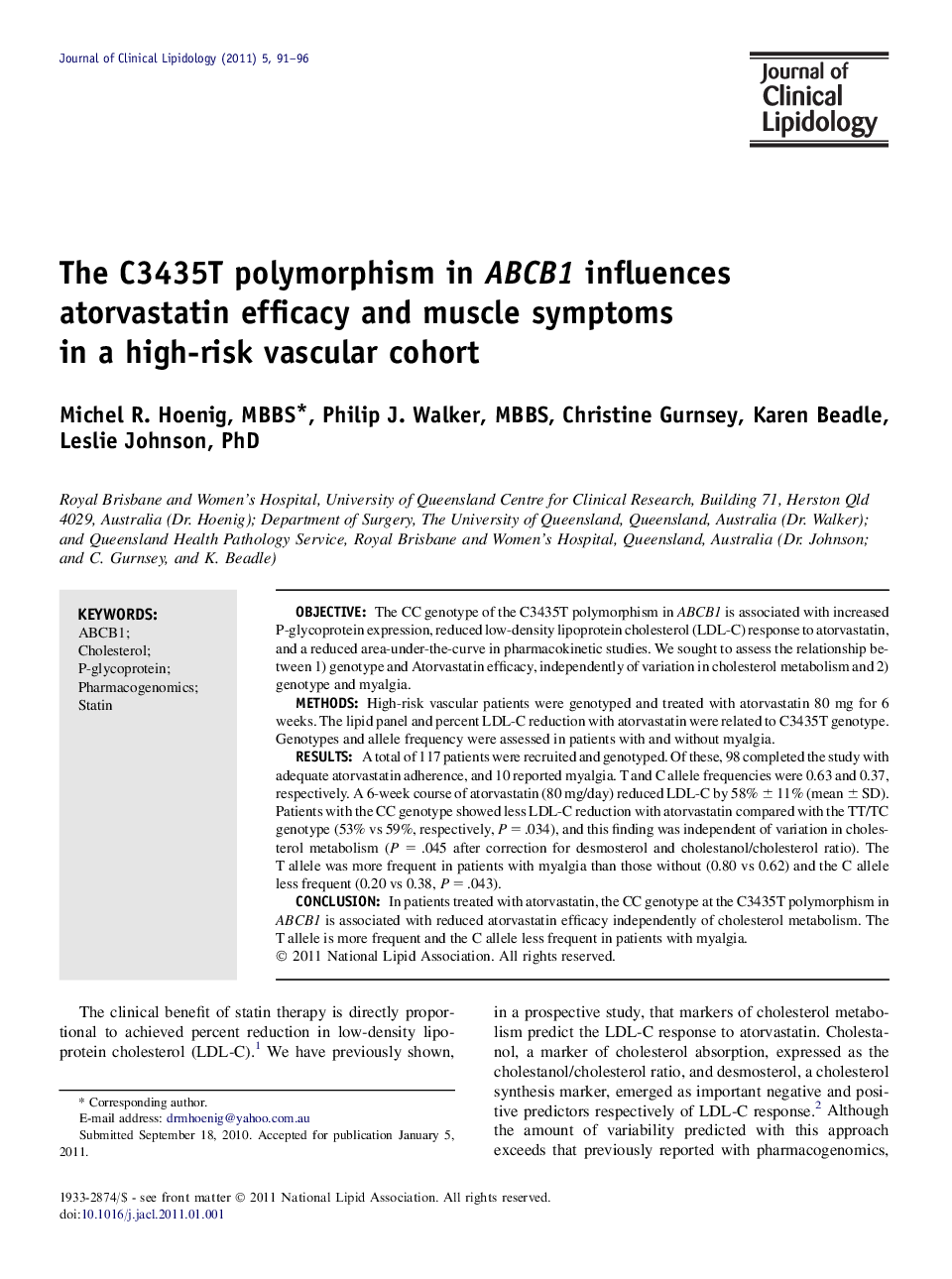| Article ID | Journal | Published Year | Pages | File Type |
|---|---|---|---|---|
| 2966648 | Journal of Clinical Lipidology | 2011 | 6 Pages |
ObjectiveThe CC genotype of the C3435T polymorphism in ABCB1 is associated with increased P-glycoprotein expression, reduced low-density lipoprotein cholesterol (LDL-C) response to atorvastatin, and a reduced area-under-the-curve in pharmacokinetic studies. We sought to assess the relationship between 1) genotype and Atorvastatin efficacy, independently of variation in cholesterol metabolism and 2) genotype and myalgia.MethodsHigh-risk vascular patients were genotyped and treated with atorvastatin 80 mg for 6 weeks. The lipid panel and percent LDL-C reduction with atorvastatin were related to C3435T genotype. Genotypes and allele frequency were assessed in patients with and without myalgia.ResultsA total of 117 patients were recruited and genotyped. Of these, 98 completed the study with adequate atorvastatin adherence, and 10 reported myalgia. T and C allele frequencies were 0.63 and 0.37, respectively. A 6-week course of atorvastatin (80 mg/day) reduced LDL-C by 58% ± 11% (mean ± SD). Patients with the CC genotype showed less LDL-C reduction with atorvastatin compared with the TT/TC genotype (53% vs 59%, respectively, P = .034), and this finding was independent of variation in cholesterol metabolism (P = .045 after correction for desmosterol and cholestanol/cholesterol ratio). The T allele was more frequent in patients with myalgia than those without (0.80 vs 0.62) and the C allele less frequent (0.20 vs 0.38, P = .043).ConclusionIn patients treated with atorvastatin, the CC genotype at the C3435T polymorphism in ABCB1 is associated with reduced atorvastatin efficacy independently of cholesterol metabolism. The T allele is more frequent and the C allele less frequent in patients with myalgia.
